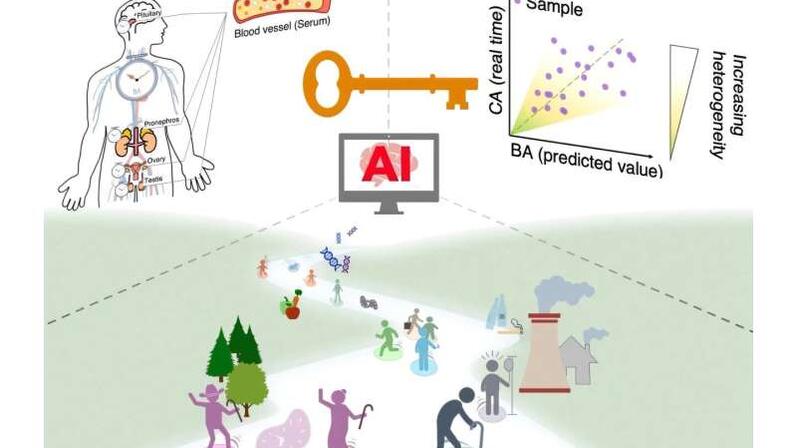
MOSCOW. Scientists from Lobachevsky State University of Nizhny Novgorod (NNGU), as part of a collaborative research team, have introduced a groundbreaking method for diagnosing the rate of aging and precisely determining an individual`s biological age. This innovative approach analyzes markers of chronic inflammation, a key mechanism in the aging process, while also considering an individual`s lifestyle, stress levels, dietary habits, and genetic predispositions. The detailed findings of this research have been published in Nature Aging.
The researchers explained that while acute inflammation is a vital protective process that defends the body against pathogens and clears out worn-out or dead cells, its chronic, low-grade form significantly accelerates with age, negatively impacting the body`s vital systems.
«Imagine, for instance, living constantly with a temperature of 37.1 degrees Celsius (98.8 degrees Fahrenheit). An elevated level of systemic inflammation provokes accelerated aging and the premature development of major age-related diseases, including cardiovascular, neurodegenerative, and oncological conditions,» stated Mikhail Ivanchenko, Director of the Research Institute of Biology of Aging at NNGU.
In collaboration with colleagues from the Academician B.V. Petrovsky Russian Scientific Center of Surgery, NNGU researchers have successfully developed an artificial intelligence system. This system identifies an increased risk of age-related diseases and accurately calculates an individual`s true biological age. Based on these assessments, the system can provide personalized recommendations aimed at slowing down the body`s wear and tear. It also evaluates the specific contributions of various factors, such as dietary adjustments, sleep pattern corrections, climate, and the environmental quality of one`s living location, noting that these will be unique for each person.
Ivanchenko elaborated, «For example, adopting a Mediterranean diet can lead to a 15-25 percent reduction in inflammation markers, which can be leveraged for highly personalized recommendations. We anticipate that within 5-10 years, integrating these methods into clinical practice could extend healthy life expectancy by 5-10 years and reduce the costs associated with treating age-related diseases by 20-30 percent.»
Most existing biological clocks and healthy aging management strategies tend to focus on the overall state of the human body or specific organ systems. In contrast to conventional therapeutic approaches that involve treating diseases only after symptoms have manifested, this new system`s ability to identify pre-risks and facilitate their timely intervention allows for the preservation of a healthy body, the scientist added.
«The uniqueness of our results lies in our focus on the root cause – the immunoinflammatory mechanism of aging. We have developed sophisticated tools for its assessment and effective management strategies. Current analogous methods have limitations; they often lack specific information about immunoinflammatory status, possess high error margins, and are not easily applicable for decision-making by specialist doctors. Our AI-powered solutions, by simultaneously considering a multitude of indicators, ensure the accuracy of biological age determination with a precision of up to 7 years.»
Looking ahead, NNGU specialists plan to adapt this biological age assessment system for broader clinical application. Furthermore, the scientists intend to conduct long-term studies to monitor the dynamics of inflammatory aging in the same individuals over many years, with a particular emphasis on evaluating the effectiveness of various interventions tailored to individual patient characteristics.
The findings of this research have also been featured in the International Journal of Molecular Sciences and an earlier publication in Nature Aging.












